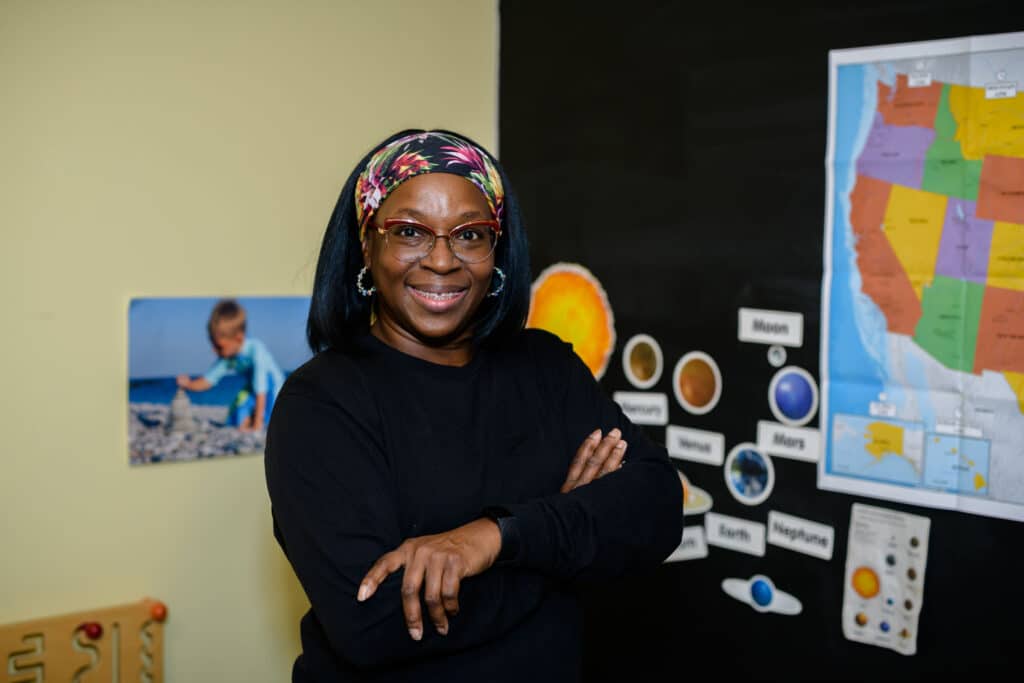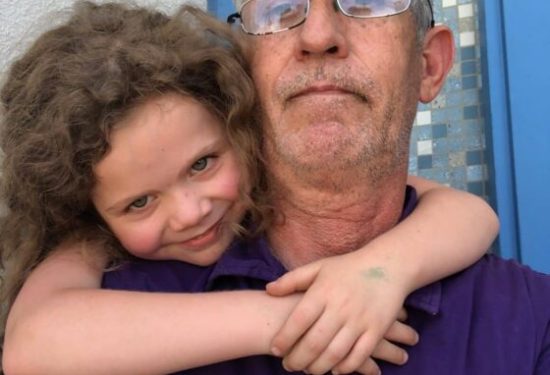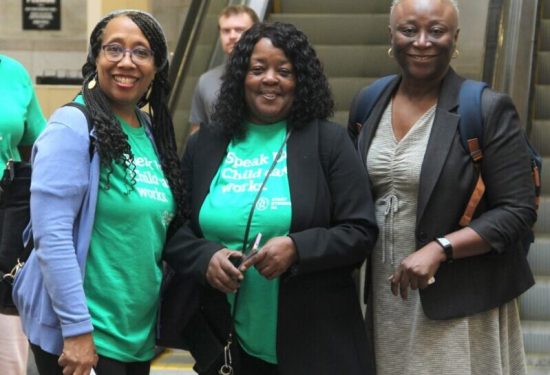In February 2021, Home Grown launched the Leading from Home initiative with the goal of supporting home-based child care (HBCC) providers leading grassroots networks in their communities. Too often current systems leave providers and caregivers out of the decision-making process. Home Grown created Leading from Home with the belief that it is critical to engage providers and parents in policy change and to support the leadership of providers and their ability to influence policy and systems.
Over the past year, Home Grown has had the privilege and honor of getting to work with an amazing group of HBCC providers who are dedicated to not only caring for children but also to creating positive change in current systems. All of these providers- both licensed family child care (FCC) and family, friend, and neighbor (FFN)- advocate for and with their fellow providers in their respective states.
One of the Leading from Home provider leaders is Pamela Childress, the owner, and operator of Just 4 Kids in Aurora, IL.
Pam recalls that the quote “Why complain when you’re not willing to do anything to make it better?” hung in her previous employer’s hallway. So when she had some concerns about the after-school program her child attended, she decided to do something about it. One afternoon during pick-up, she asked the other parents for their thoughts on sending their children to an afterschool program in a home care setting. Immediately three moms jumped on the idea and Pam’s program, Just 4 Kids, came to life. Today, Just 4 Kids serves 11 children and has received several awards for its commitment to serving the community, four Mayoral Commendations from current and past administrations, as well as the Children’s Champion Award from the National City Bank. This year Pam will celebrate her program’s 26th anniversary.
As a home-based child care provider, Pam has often encountered challenges accessing systems and supports. For example, her local child care resource and referral (CCR&R) agency/ Y.W.C.A, which offers mandated DCFS training required to maintain licensure, is located about 30 miles from her home. To attend training Pre-Covid, Pam had to wait for her last family to depart her program and then navigated rush hour traffic the 30 miles to the CCR&R. She often struggled to arrive on time and at times she was turned away for being late. Challenges continued during the pandemic when Pam found it difficult to access free, essential PPE resources from her CCR&R. The CCR&R announced pick-up hours for the free PPE during the work week at a time when HBCC providers are actively caring for children and unable to step away from their programs.
Pam spoke up. She voiced her concerns that these resources were not made accessible to HBCC providers. In response, her local CCR&R rented an additional location to meet the needs of providers in Pam’s area. “Being part of the Leading From Initiative has given me knowledge to bring improvement to the Aurora Childcare Network. It has empowered us to voice our opinion to make our network stronger,” Pam states.
Pam also began to share her message openly with others, including her local state representative. She initially contacted her state representative to discuss the issues she faces as an HBCC provider. Pam secured a meeting with her state representative and seized the opportunity to share her message. Pam asked her state representative, “What are you doing for family child care? We voted for you, we need to know what you’re doing”.” Since that meeting, Pam and her state representative have built a relationship and now have weekly conversations regarding family child care and providers in her community.
Home Grown is honored to have convened a community of tremendous provider leaders like Pam who uplift the voices and concerns of their communities and also uplift their fellow leaders in Leading from Home. During this year, we have seen lifelong friendships form between the leaders with providers supporting one another and advocating for each other. As we open applications for a second cohort, we aim to continue growing our national community of provider leaders (licensed, as well as unlicensed providers) and supporting providers working to create change. We encourage all home-based child care providers who have a passion for advocating for their fellow providers and families to apply for the next cohort of Leading From Home.
When asked for one piece of advice she would give a provider interested in the Leading From Home initiative, Pam said, “being a part of the Leading From Home initiative with Home Grown has given me resources and an understanding of the value of my business and the role of advocacy that we as providers must play. Advocate for yourself and allow Home Grown to teach you the rest.”
If you are interested in more information or applying to the Leading From Home initiative, please click here.



